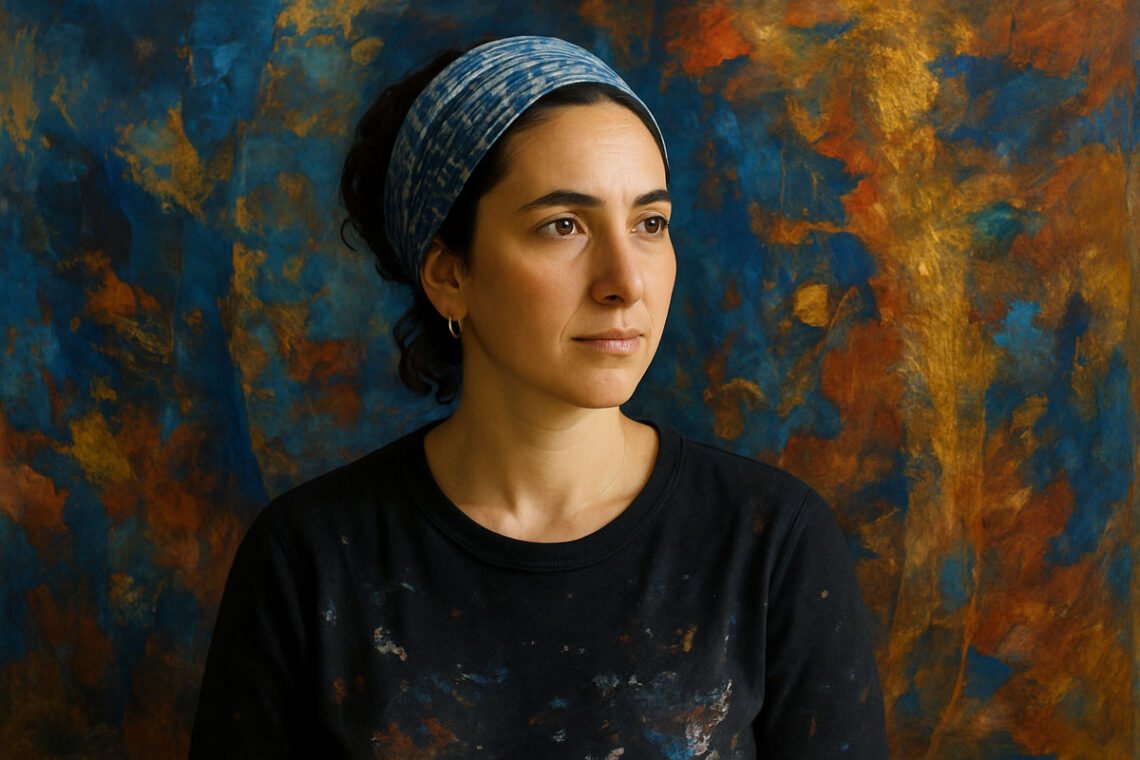Introduction: The Rising Voice of Shani Levni
Shani Levni is quickly emerging as a significant voice in contemporary art, captivating audiences with her vivid, textured compositions and profound thematic depth. Born in Tel Aviv, Israel, Levni’s work transcends mere aesthetics, acting as a powerful medium for exploring complex ideas around identity, memory, and spirituality. Her unique blend of bold abstraction and deeply personal symbolism has positioned her as an artist who not only creates beauty but also sparks vital conversations.
Her artistic journey is marked by a commitment to using creativity as a tool for social reflection and change. Through her paintings, mixed media installations, and community-focused projects, Levni invites viewers to engage with history, culture, and the enduring human spirit. She is an artist whose canvas extends beyond the frame, reaching into the heart of contemporary cultural discourse.
H2: Roots of Creativity and Academic Depth
H3: Early Influences in Tel Aviv
Levni’s formative years in Tel Aviv were instrumental in shaping her artistic vision. Growing up in a city that is a dynamic blend of tradition and modernity, she was exposed to a rich tapestry of cultural and intellectual dialogue. This environment, coupled with her family’s diverse heritage, instilled in her a deep appreciation for visual storytelling and the power of art to connect people.
She often speaks of her home as a space filled with music, discussion, and reflection, experiences that laid the groundwork for her creative identity. This early exposure to a mix of Jewish, Middle Eastern, and European influences is a cornerstone of the complex narratives woven into her mature work.
H3: Formal Education and Conceptual Framework
Her formal education provided the intellectual rigor to match her innate talent. Levni studied at the prestigious Bezalel Academy of Arts and Design in Jerusalem, where she honed her skills in abstract expressionism. This period was crucial for understanding the interplay between color, form, and texture, which would become hallmarks of her style.
Later, she pursued an MFA in Art Theory in Berlin. This advanced study allowed her to develop a strong conceptual framework, particularly around the theme of “Memory as Material.” Her academic work explored how collective trauma and cultural history can be visualized through layers and texture, providing the philosophical depth that distinguishes her art.
H2: The Signature Style: Layers, Symbols, and Spirituality
Levni’s artistic style is instantly recognizable for its intensity and layered complexity. She frequently employs mixed media, using dense layers of fabric, paper, and paint to create surfaces that are rich with history. These layers are not just textural; they represent the accumulation of time and the multifaceted nature of memory.
Her color palette is a deliberate choice, often drawing inspiration from the Israeli landscape and sacred imagery. Deep blues and earthy reds ground her work, while the frequent use of gold accents hints at themes of transcendence, light, and spiritual sanctity. Each piece feels like an archaeological dig, inviting the viewer to peel back the surface and discover hidden meanings.
H3: The Language of Symbolism
A core element of Levni’s work is her use of recurring symbols that act as a visual language. These symbols are often rooted in tradition but are reinterpreted for a modern context.
For example, the olive tree frequently appears, symbolizing peace, heritage, and resilience. Pomegranates represent tradition and fertility, while fragmented scrolls or texts allude to suppressed history and the search for voice. By integrating these powerful motifs, Levni ensures her art engages the viewer on both an emotional and intellectual level.
H2: Art as Activism: Beyond the Studio
Levni’s commitment to art as a catalyst for change extends far beyond the gallery walls. She is a firm believer that creativity is a universal language that can bridge cultural divides and foster empathy. This belief is most clearly demonstrated in her social initiatives.
She founded The Root Collective, a nonprofit organization dedicated to empowering immigrants and refugee youth through art. This initiative runs workshops across various countries, providing marginalized communities with a platform to transform their personal stories of displacement and trauma into visual expressions.
Through this work, Levni transforms the act of creation into a form of healing and unity. Her community projects, which often result in public murals and exhibitions, showcase the resilience of the human spirit and turn art into a dialogue of remembrance and hope.
H2: Notable Works and Global Recognition
Levni’s exhibitions have garnered significant critical attention, establishing her presence in the global art scene. Her work has been showcased in prominent venues, including the Tel Aviv Museum of Art and the Jerusalem Biennale.
One of her celebrated pieces, “Whispers of the Olive Tree” (2018), was praised for its emotional gravity and subtle political undertones. Another powerful installation, “Letters Never Sent,” featured dozens of paper scrolls inscribed with notes from displaced individuals, creating a physically engaging experience that blurred the line between observer and participant.
Her ability to translate profound emotion into striking visual form has attracted collectors and institutions worldwide. As she continues to evolve, Shani Levni remains a compelling figure, constantly challenging the boundaries of contemporary art and cementing her legacy as a social storyteller.
H2: Conclusion: A Legacy of Connection
Shani Levni’s journey is a powerful testament to the transformative potential of art. Her multidisciplinary approach—blending the visual intensity of abstract painting with the conceptual depth of cultural theory and the tangible impact of social activism—makes her a truly unique artist of her generation.
She offers a visual language for a world grappling with issues of identity and displacement, reminding us that creativity is not just an adornment but an essential tool for connection and healing. By continuing to use her canvas as a platform for dialogue, Levni inspires not only aspiring artists but anyone seeking to understand the deeper, layered truths of the human experience.





